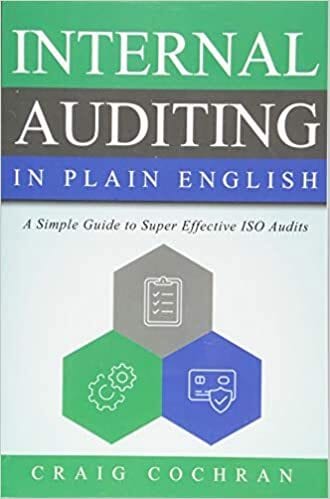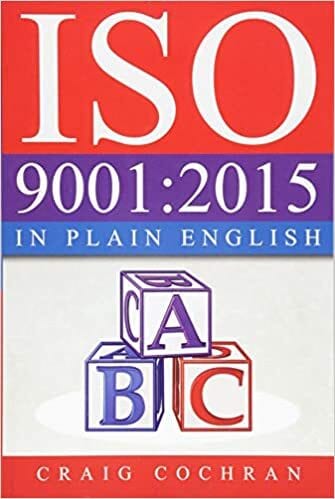Optimizing everything correctly, while ideal, may not always be possible. Whether it’s attempting to achieve specific objectives, improve the effectiveness of team members, or receive financial advice, a business is only as strong as its internal controls.
You may have heard of external audits, where agencies like the IRS pore over a company’s or individual’s financial statements to ensure everything is in order. Internal auditing, on the other hand, provides a company with a valuable tool to keep their house in order from the inside.
Performing internal audits can improve your businesses’ overall quality. It’s a fantastic way to achieve balance, accountability, responsibility, objectivity, and more. So, what is internal auditing and should you take an internal auditing course? Read on to learn more.
What Is Internal Auditing?
Internal auditing is a fantastic way for a business to achieve its goals. Companies and individuals use audits to evaluate their financial statements and records. While many institutions employ the expertise of a CPA for an external audit, internal audits are entirely in-house. Internal auditors come from the existing roster of company employees.
These audit committees engage in financial reporting and documentation of professional practices, aiming to assist management and the board of directors in the company’s overall direction. Stressing independence and objectivity, internal auditing follows the International Organization for Standardization (ISO 9001) family of quality management systems.
There are also internal audits for other aspects of a company, like IT. There are internal audit professionals dedicated entirely to examining the ins and outs of a company’s information technology infrastructure, ensuring that all is up to date. This helps a company prevent cybersecurity risks and protects assets.
What Is Internal Auditing Used For?
Internal auditing is pretty diverse in its execution and goals. What are some of its primary functions?
- Examining corporate governance. An internal audit professional can wear many hats, including that of a human resources watchdog. If corporate governance isn’t performing up to standards, this can create a lot of problems. Are the higher-ups following the right laws?
- Spotting and preventing illegal activity. In 2002, the Sarbanes-Oxley Act, or the Corporate and Auditing Accountability, Responsibility, and Transparency Act, found traction in the U.S. government after a string of financial scandals. Internal auditors need to follow the Sarbanes-Oxley Act regulations, which aim to protect investors by providing them with more open and accurate information about finances.
- Compiling financial statements and reports. Like regular financial audits, internal audits gather financial statements, quarterly earnings, and more to ascertain a company’s compliance with financial laws.
- Following the International Professional Practices Framework (IPPF). The International Professional Practices Framework (IPPF) is the framework of guidance used by internal auditors, courtesy of the Institute of Internal Auditors (IIA). Internal audit activity revolves around many facets of this framework.
Types of Internal Auditing
There are a few different types of internal auditing used at companies. Let’s take a look at the most prevalent types.
Financial Audits
Probably the most popular use of internal auditing is the financial audit. This is when auditing professionals compile financial statements, examine accounting practices, and analyze overall company policy. If executed poorly, the company can experience unwanted and unfavorable attention from government bodies.
Are companies keeping their finances legal and in order?
Compliance Auditing
As you can imagine, this form of internal auditing deals with corporate governance. As we have seen, auditing is more than making sure all the transactions over a fiscal quarter line up.
Auditing professionals need to ensure that a company follows applicable laws (like the Sarbanes-Oxley Act) and upholding regulations. This requires considerable effort, as an audit committee or audit professional needs to know corporate rules inside and out.
Are companies keeping compliant with laws?
Operational Audits
An operational audit is broader in its outcomes. Operational audits cover a wide swath of business activities and aim to integrate all of them into one internal audit. Auditing professionals compile financial statements, monitor corporate activity, and more to assess the effectiveness of a company’s practices.
Is a company using its resources to the best of its ability? Is it wasting money on resources it doesn’t need? Operational audits aim to answer these questions and solve problems if and when they arise.
Are companies operating efficiently?
Learning Internal Auditing

So what skills and educational bona fides do you need to thrive as an internal auditor?
Internal audit activity calls for outstanding observational skills, a knack for corporate governance, and an aptitude for risk management. With risk management, you can better plan for and implement best practices to ensure financial security over multiple financial quarters.
Along with having risk management skills, you absolutely need to learn financial management. Since auditing is a numbers game, having a strong background in accounting or finance is a must for examining a company’s financial statements. Otherwise, mistakes are bound to occur.
Let’s examine some of the essential info before you dive into the challenging yet rewarding field of internal auditing.
How Long Does It Take to Learn Internal Auditing?
Between four and five years, give or take. Internal auditing isn’t a skill you learn overnight. It isn’t like learning Excel or coding. Internal auditing requires you to be vigilant, observant, and ethical as you undertake many essential responsibilities.
It requires intense study, comprehensive financial education, and keen knowledge of business ethics. While online resources and classes can undoubtedly assist in these goals, you will need to take it a step further to truly understand the advanced aspects of internal auditing.
For many, taking the time to earn a bachelor’s degree is a surefire way to become an internal auditing professional.
How to Learn Internal Auditing: Step-by-Step
Let’s examine the steps you can take to not only improve the effectiveness of a business but also make it easier and more straightforward.
- Learn statistics. Learning statistics is one of the best ways to familiarize yourself with finances and start mapping out financial strategies.
- Consider getting a degree. A master’s degree may or may not be necessary, but a bachelor’s degree in finance, for example, will definitely lay a solid foundation for your future. Degrees also help you stand out during the hiring process. You will likely need a degree of some sort to be considered for a job in internal auditing.
- Take online courses. Taking paid and free online internal auditing courses can introduce you to internal auditing. They can also enhance existing knowledge on the subject. They are quicker ways of learning information in the modern world.
- Earn a certification. Certifications, especially in the financial sphere, are fantastic tools for your job search. Companies looking specifically for a financial expert can use certifications to weed out the pool of applicants and find the best candidate.
The Best Internal Auditing Courses and Training
There are excellent online options for internal auditing courses. You should also explore taking accounting courses since accounting is a large facet of internal audit activity. Let’s see what classes you should take to improve your internal auditing knowledge.
Best Online Internal Auditing Courses
Flexible, affordable, and useful. Learning via online courses is a new way to learn, retain, and use information. Here are some great options for internal auditing courses.
Internal Auditor Quality Management Systems
- Provider: Auditor Training Online
- Time: Self-paced
- Prerequisites: None
- Cost: $925
Although on the more expensive side, this class introduces you to the ISO 9001 standards in a quality management system. This is the backbone of any internal auditing education.

"Career Karma entered my life when I needed it most and quickly helped me match with a bootcamp. Two months after graduating, I found my dream job that aligned with my values and goals in life!"
Venus, Software Engineer at Rockbot
This online course offers crucial knowledge needed to understand a company’s internal controls, growth, and more. By the end of the course, you will have a plethora of useful takeaways. Knowing the proper QMS is not only essential to a company’s success, but it can also improve your chances of success in a job hunt.
Internal Auditing Basics
- Provider: Quality WBT
- Time: 9 hours
- Prerequisites: none
- Cost: $209
This online course is perfect for those who want to understand the entire auditing process or those who wish to enhance their existing knowledge.
Over 12 main modules, students learn internal auditing basics, everything from proper communication to writing a full and cohesive audit report. It’s entirely self-paced, so there’s no pressure if you can’t dedicate a week’s worth of work.
If you are looking for a great class to introduce you to internal auditing basics, this is probably your best bet. Internal audit courses are relatively expensive, but the education that instructors impart is genuinely invaluable.
Best Free Internal Audit Courses
You can see that many internal audit courses are expensive. If you were wondering whether you could find something for free, you’re in luck. The free courses below are good ways to familiarize yourself with internal auditing without hurting your bank account.
ISO 9001:2015 Internal Auditor Course
- Provider: eTraining
- Time: 15 hours
- Prerequisites: None
- Cost: FREE
In keeping with the International Organization for Standardization’s quality management system, this course teaches you how to balance internal auditing with QMS standards.
While a large focus is on the standards, students will learn how to perform internal audits for their company or business effectively. There are eight modules, each consisting of various readings, quizzes, and assignments. This is a great way to inundate yourself with excellent educational materials and learning aids.
There is no time limit for the course, and it is entirely flexible. You can even pay for a certificate upon completion.
Auditing I: Conceptual Foundations of Auditing
- Provider: Coursera
- Time: 27 hours over 4 weeks
- Prerequisites: none
- Cost: FREE
Offered by the University of Illinois and taught by Mark E. Peecher, PhD, CPA, this introductory course to auditing is a great place to start.
If you want bare-bones concepts and principles that make up the practice of internal auditing, this is the course to explore. After learning what makes up the foundations of internal auditing, students learn the valuable critical thinking and ethical education needed for effective auditing.
Auditing relies heavily on effective communication between multiple parties. Over the course of four weeks, this class allows you to develop the tools you will need to plan and execute a comprehensive internal audit at any company.
You have the option to pay for a shareable certificate at the end of your studies as well.
Best Internal Auditing Books
If you want to start slow, and you are hesitant about joining a class, there is plenty of literature on the subject of internal auditing. As it’s a staple of effective corporate culture, there are top-rated books in abundance.
Internal Auditing in Plain English: A Simple Guide to Super Effective ISO Audits, Craig Cochran

When broaching a new subject, what do we all want? Ideally, we want to be able to understand it without too much effort. Luckily with this text, Craig Cochran provides a straightforward, concise, and comprehensive resource for internal auditing knowledge.
Craig Cochran has cut out all of the fat of internal auditing and boiled down the key concepts into digestible bits. His straightforward approach makes previously complicated subjects and concepts incredibly easy to understand.
This is a fantastic book for beginners. Whether you are new to internal auditing or are an experienced auditor looking for new strategies, this is a great resource.
ISO 9001:2015 in Plain English, Craig Cochran

Craig Cochran once again offers a great look into the deep and multifaceted world of internal auditing. In this book, Cochran explores the ever-important ISO 9001 family of quality management systems.
Without these systems in place, a company simply isn’t receiving the best analyses and possible improvements. This text in particular significantly revises the ISO QMS, and luckily you have Cochran as a guide.
As with his previous book, Cochran translates the dry, often hard-to-understand ISO concepts and puts them in plain English for anyone to grasp.
Internal Auditing Certifications
As we have already covered briefly, certifications can help your resume stand out. While attending an impressive college degree program can turn heads, being well-versed in internal controls and compliance laws can push you over the finish line.
Here are some noteworthy certifications to explore.
Certified Internal Auditor (CIA)
This certification course comes from the Institute of Internal Auditors (IIA) and is the industry standard in the internal auditing field. This is a great way to not only receive a certification in internal auditing but to enhance your skills and strengthen your weak spots.
This is both a prep course and a comprehensive internal auditing course that prepares you for the certification exam. It is ideal for current internal auditing students who want to earn crucial credentials. The CIA should be your first stop for certifications.
Certified Information Systems Auditor
Certified Information Systems Auditor (CISA) is an internal audit professional specializing in information technology and other computer systems.
As briefly mentioned before, dealing with information technology in conjunction with internal auditing can mean the difference between lax cybersecurity and robust protection.
This certification shows that you are well aware of all of the facets of information systems and keeping them up-to-date and in compliance with specific laws. Those with this certification earn significantly more in their careers, and it opens up tremendous job opportunities.
Online Internal Auditing Resources
If you are looking for something outside the realm of books, online courses, or certifications, feel free to bookmark these great online internal auditing resources for future use.
Internal Audit Resource Centre

The Internal Audit Resource Centre is a branch of the Institute of Chartered Accountants in England and Wales. No matter where you live, however, you can glean beneficial resources from this site.
There are blogs, newsletters, and links to other useful sites. There are multiple portals for basic internal auditing activities like performing an audit and auditing the cloud.
You can explore the various resources provided by the IIA, along with timely stories, advice, and tips.
The Institute of Internal Auditors (IIA)

What better place to brush up on internal auditing knowledge than from the organization responsible for multiple rules and regulations? The IIA is the be-all-end-all source for all things dealing with internal auditing.
This site provides news, blog posts, updates, and even educational materials for anyone curious about internal auditing.
Should You Study Internal Auditing?

When searching for and choosing a career opportunity, there is much to consider.
If you consider yourself meticulous, detailed, observant, and an all-around perfectionist, a career in internal auditing may be just what you need. There are plenty of internal auditing courses, books, and supplemental materials to assist you in choosing your path.
If you are proficient with financial reporting, best practices, and want to improve the effectiveness of businesses, choose internal auditing as a profession.
About us: Career Karma is a platform designed to help job seekers find, research, and connect with job training programs to advance their careers. Learn about the CK publication.



